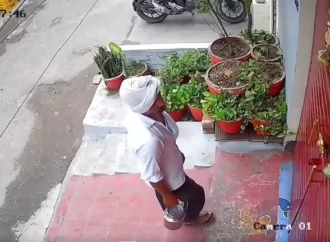Report
Food poisoning affected around 40 first-year engineering students at MANIT (Maulana Azad National Institute of Technology), Bhopal, after they ate at the H-4 hostel mess on Saturday. Most students experienced vomiting and stomach pain. Sharda Hospital in Aradhna Nagar admitted them between Saturday evening and Sunday morning. While students reported 40 cases, MANIT officials confirmed 15. The administration assured students and families of a full investigation into the incident.
Students Suspect Spoiled Potatoes
Students said the mess served aloo-paratha for breakfast and aloo sabzi for lunch. They believe spoiled potatoes caused the illness, as extreme summer heat often leads to rotting and other quality issues in stored vegetables. Dr. Umesh Sharda, MD of Sharda Hospital, confirmed treating 20 students. “They suffered from food poisoning but are improving. We expect to discharge them by Monday. Contaminated or spoiled food often causes nausea, vomiting, and diarrhoea,” he said.
MANIT Launches Internal Investigation
MANIT’s Public Relations Officer, Rahul Tiwari, stated, “Our resident doctors gave initial treatment, and some students went to hospitals for further care. We’re actively investigating issues in the mess.” After receiving complaints, the Food and Drug Administration (FDA) team inspected the MANIT mess. Inspectors collected six samples—rice, tuar dal, flour, gram flour, cooked sabzi, and rice—for lab testing. They also found loose storage of ingredients, raising hygiene concerns.
Colleges Respond with Preventive Action
The MANIT incident prompted other Bhopal colleges to review their food safety protocols. Institutions like AIIMS, Gandhi Medical College, and the LNCT Group inspected hostel kitchens and tightened hygiene practices. Dr. Rakesh Shrivastava, Civil Surgeon at JP Hospital, reported a 20% rise in diarrhoea and vomiting cases this summer. “Contaminated food and water are key reasons. Items like fruits, vegetables, and dairy spoil faster in the heat. People need to stay alert,” he said.
-
Jai Narayan Chouksey, Chairman of the LNCT Group, instructed the canteen staff to maintain strict hygiene. His teams donate leftovers to cattle shelters and other locations.
-
Dr. Ketan Mehara from AIIMS said junior doctors regularly monitor food quality. “We run our mess through an outsourced system and dispose of leftovers scientifically,” he added.
-
Dr. Kavita N Singh, Dean of Gandhi Medical College, said, “We’ve assigned junior doctors and wardens to monitor hostel canteens daily.”
FDA Emphasises Responsible Food Preparation
Devendra Dubey, the FDA in charge, explained that college canteens cook food based on student strength to avoid leftovers. “This isn’t a bhandara. Canteen staff usually eat the leftovers. A few months ago, we sealed a college canteen due to poor hygiene,” he said. Although some colleges donate excess food to orphanages, gaushalas, and slums, the FDA stressed the importance of responsible food storage, cooking, and disposal—especially during the summer.
Source: Free Press Journal
 Food Manifest
Food Manifest 













